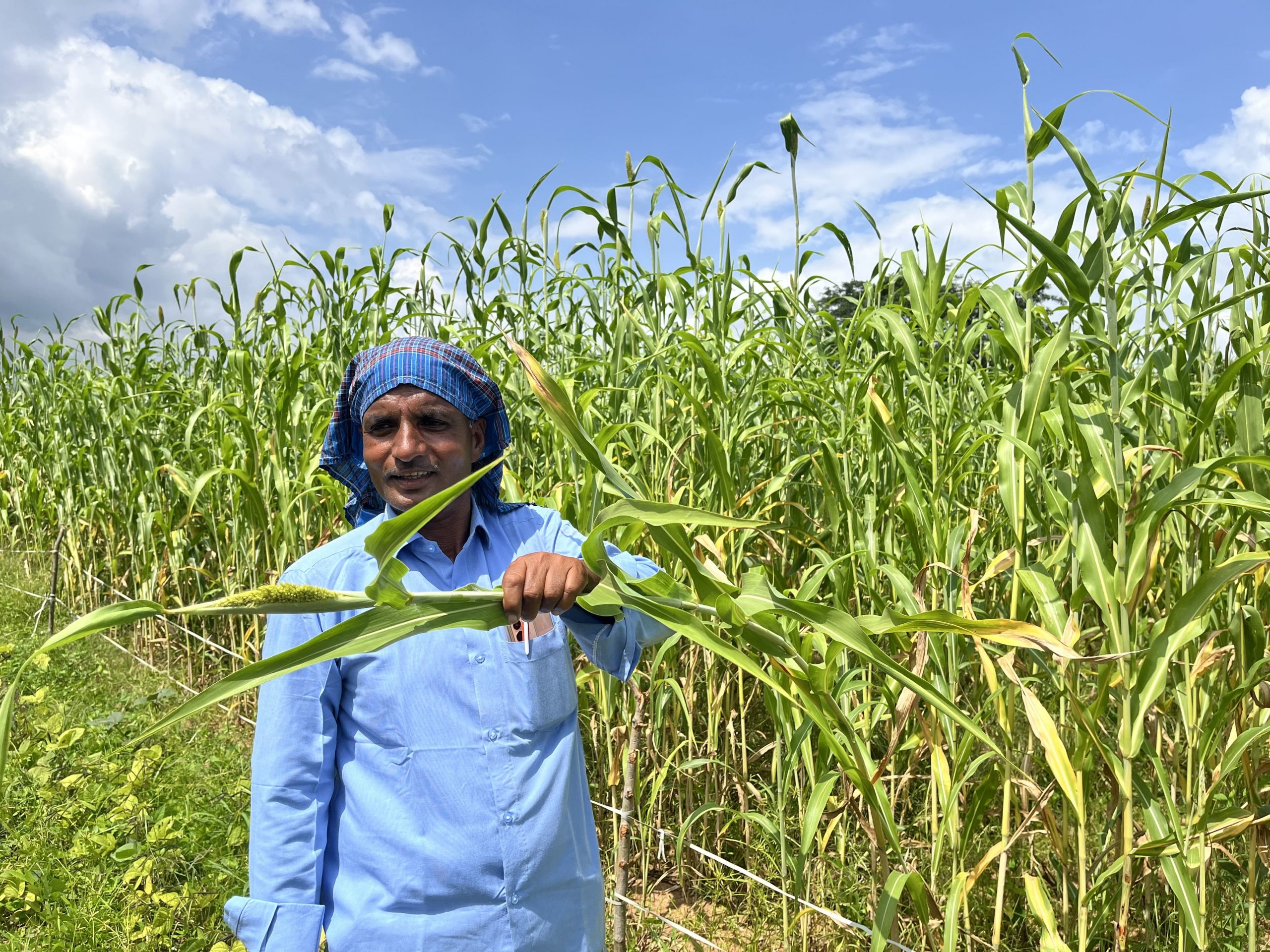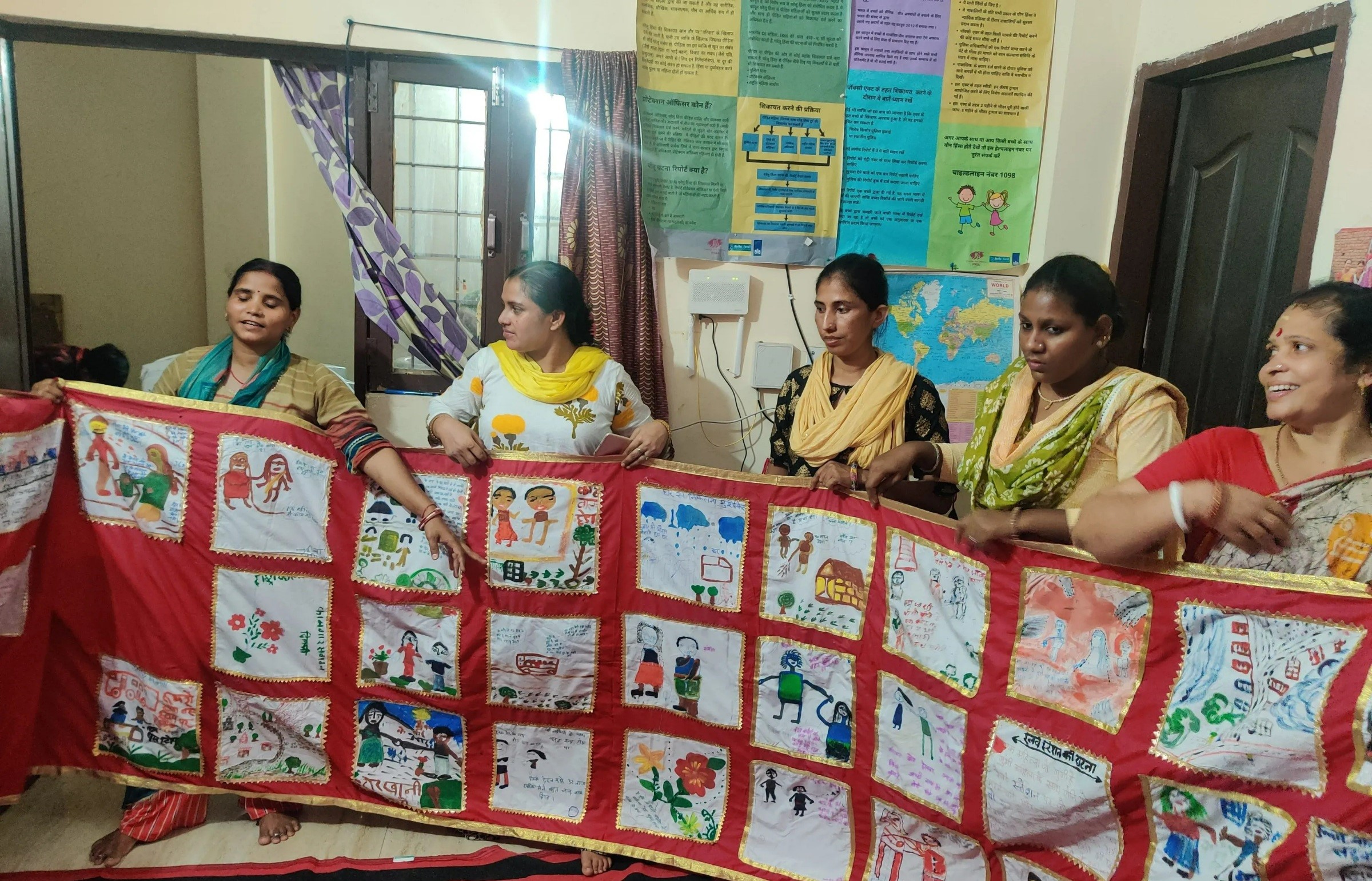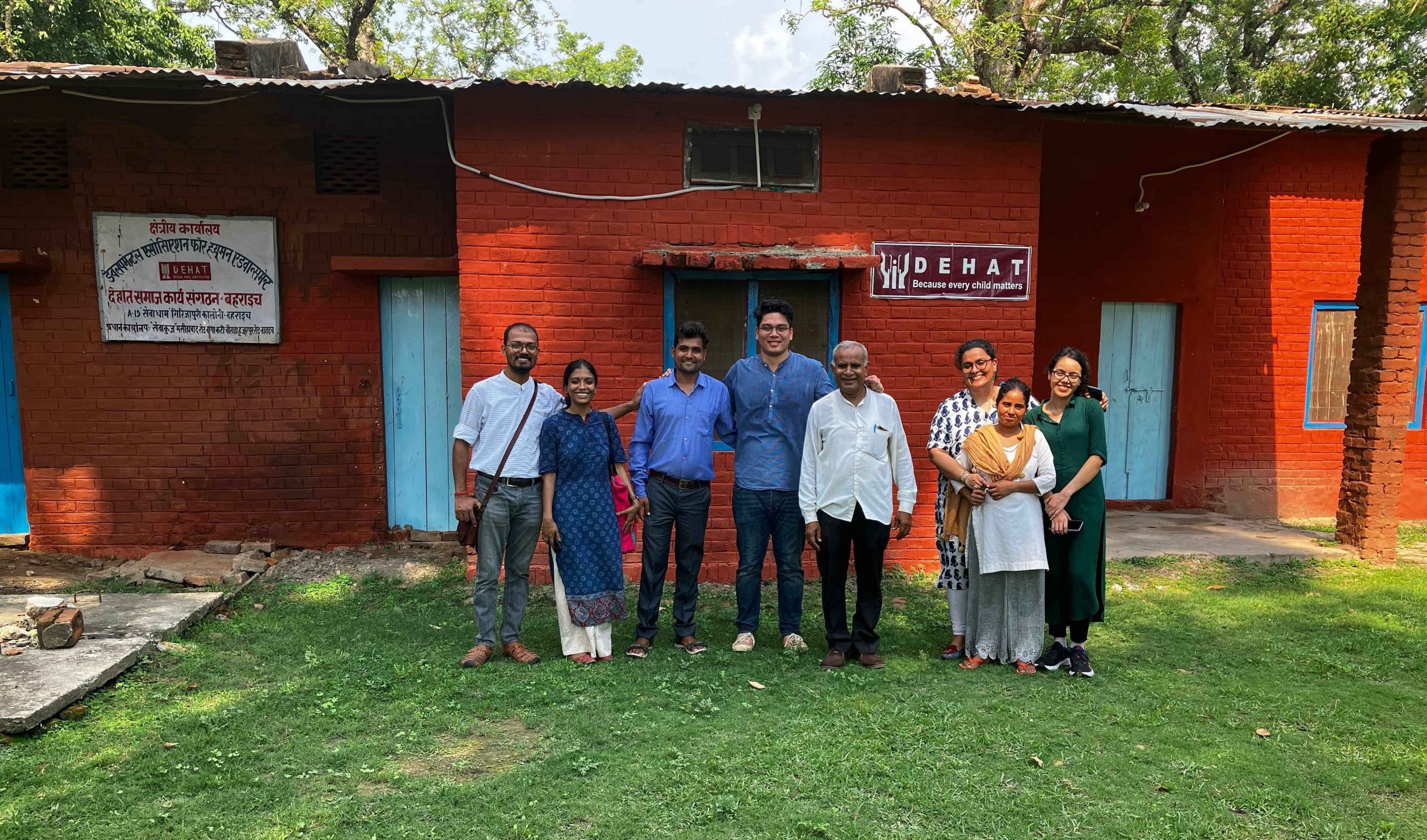Telangana, a semi-arid state of India, receives rainfall for only about 40 days a year. Unlike its neighboring coastal Andhra Pradesh, which enjoys extensive irrigation facilities, most of Telangana’s agricultural land depends on limited rainfall. For decades, farmers here have relied heavily on rain-fed paddy and cotton, the latter being a lucrative cash crop. However, cotton is also a water-intensive crop with high input costs—a burden especially heavy for smallholder farmers from Dalit and Banjara tribal communities who own less than an acre of land.
Genesis of SEED
Society for Environment Protection and Education Development (SEED) was co-founded by Dr. Papaya and Dr. Viruputi, who at first provided free medical check-ups to tribal and Dalit communities near Hyderabad. As they worked with these communities, they recognized the need to offer merit-based scholarships to deserving students. From 1993 to 2020, SEED awarded scholarships to countless students, helping them pursue education and break the cycle of poverty.
Later, Nagabrahma Chary, an environmentalist with a robust academic and research background, joined SEED. Under his guidance, SEED designed and implemented community-centric programs tailored to the specific needs of the communities and the environment. SEED began with health awareness camps and gradually expanded to offer merit scholarships to children from Backward Caste communities.
Tackling water scarcity through conservation
Between 2010 and 2015, SEED conducted a comprehensive baseline survey in Vikarabad, focusing on water conservation and livelihoods. The survey, mapped using topographical sheets and supported by a trend analysis, revealed the alarming depletion of groundwater resources due to the high water demands of crops like cotton and rain-fed paddy.
In response, SEED, with state support, launched watershed management projects aimed at restoring the region’s water balance. They implemented various water conservation activities such as water absorption trenches, percolation tanks, and continuous contour trenches (CCTs) to prevent soil erosion and promote groundwater recharge. The impact of these interventions was later validated by a survey conducted by Azim Premji University, which reported significant improvements in groundwater levels.
From shifting cultivation to more sustainable practices
Vikarabad, a small, quiet district in Telangana, receives only 690 mm to 781.5 mm of rainfall annually, making it one of the driest regions in the state. The adoption of modern agriculture over the last two decades has exacerbated water scarcity.

SEED works closely with the Banjara tribal community, a nomadic group from Rajasthan that settled in Telangana about three decades ago. Initially practicing “Phodu bumalu” (shifting cultivation), the community has since transitioned to more sustainable agricultural practices over the years. SEED also works closely with Dalit communities who own less than one acre of land, helping them move away from water-intensive crops like cotton and rain-fed paddy to more sustainable alternatives like millets and vegetables, which require less water and improve nutritional intake—especially important given the prevalence of folic acid deficiency among women.
The shift wasn’t easy. Cotton cultivation, though costly—averaging INR 30,000-40,000 per acre—was deeply entrenched in the region’s agricultural practices. Monoculture and water-intensive farming further degraded soil health. Recognizing these challenges, SEED collectivized small and marginal farmers from tribal and Dalit communities into the Vikarabad Farmer Producer Organization (FPO) in 2019.
The functioning of FPOs
A Farmer Producer Organization (FPO) is a legal entity owned and managed by farmers. FPOs aggregate the purchasing power of their members, allowing them to buy inputs such as fertilizers and pesticides in bulk. This bulk purchasing provides significant discounts and access to better-quality products. To establish an FPO, a minimum of 10 shareholders are required, who provide the capital and have a stake in the organization.
For an FPO to achieve financial viability, it needs 500 members contributing INR 1,000 each, raising a total of INR 5 lakhs. Once this target is met, NABARD offers a matching grant of INR 5 lakhs. SEED receives INR 90,000 from these funds to support collectivization and training efforts as a promoting institution. SEED equips FPO members with essential skills, including accounting, bookkeeping, proposal writing, and business planning.
Husnabad FPO, SEED’s first FPO established in Siddipet in 2016, was unique in its composition of 100% tribal women from the Banjara community. These women, now growing mangoes and maize, have successfully partnered with Big Basket, showcasing the FPO’s ability to connect farmers with larger markets and operate independently. Since then, SEED has established nine more FPOs—five in Vikarabad, one in Rangareddy, and three in Siddipet.
One standout example is the Keshavpalli FPO in Vikarabad, which features a mobile vegetable cooler that significantly reduces transportation costs and extends the shelf life of produce. However, not all FPOs have reached the same level of success. In some cases, SEED has had to maintain involvement due to internal challenges in leadership further complicated with weak or limited market linkages.
In Vikarabad FPO, SEED has encouraged farmers—especially Banjara tribal women and Dalit community members—to transition from water-intensive crops like cotton to more sustainable alternatives such as Little Millet, Foxtail Millet, Finger Millet, and Sorghum. These crops require less water, improve soil health, and offer greater nutritional benefits.

One local woman farmer from the Banjara tribal community shared, “I have body pain, and traveling 25 kilometers to buy fertilizers and sell my produce was difficult for me. Now, as a shareholder of the Vikarabad FPO, I get inputs at a discounted rate and can sell my produce to the FPO without the long travel.”
This highlights the practical benefits of FPO membership. Individual farmers often struggle to sell their produce at fair prices due to small quantities, limited negotiating power, and inadequate market linkages. The formation of the Vikarabad FPO has addressed these issues by helping farmers secure better prices for their produce. By pooling resources and collectively negotiating, FPOs empower farmers, reduce their travel time, enhance their market access, and improve their overall profitability.
SEED has also helped the Vikarabad FPO secure government land for neem oil production, an initiative aimed at reducing farmers’ dependence on expensive fertilizers which are procured from markets located further away. A business plan has been submitted to TRICOR (Telangana State Tribal Welfare Committee) to secure additional financial support for this project.

Impact of Rebuild India Fund

With the flexible funding support of the Rebuild India Fund, SEED organized a 10-day training program for 90 women from tribal and Dalit communities. The program covered millet cultivation, primary processing methodologies, and essential enterprise skills like grading, sorting, packing, and marketing millet products. The women also participated in an exposure visit to the Indian Institute of Millet Research (IIMR), where they learned to make various recipes such as Millet Ragi Laddoo, Jowar Samosas, Ragi Cookies, and Foxtail Millet dishes. Following this training, the Vikarabad FPO received a grant from NABARD to establish pulverization units for primary processing. All the food products are available on ONDC.
During our visit, we saw firsthand how women trained at IIMR were preparing a variety of millet-based products for Independence Day sale at the local market in Vikarabad, demonstrating the impact of SEED’s initiatives.
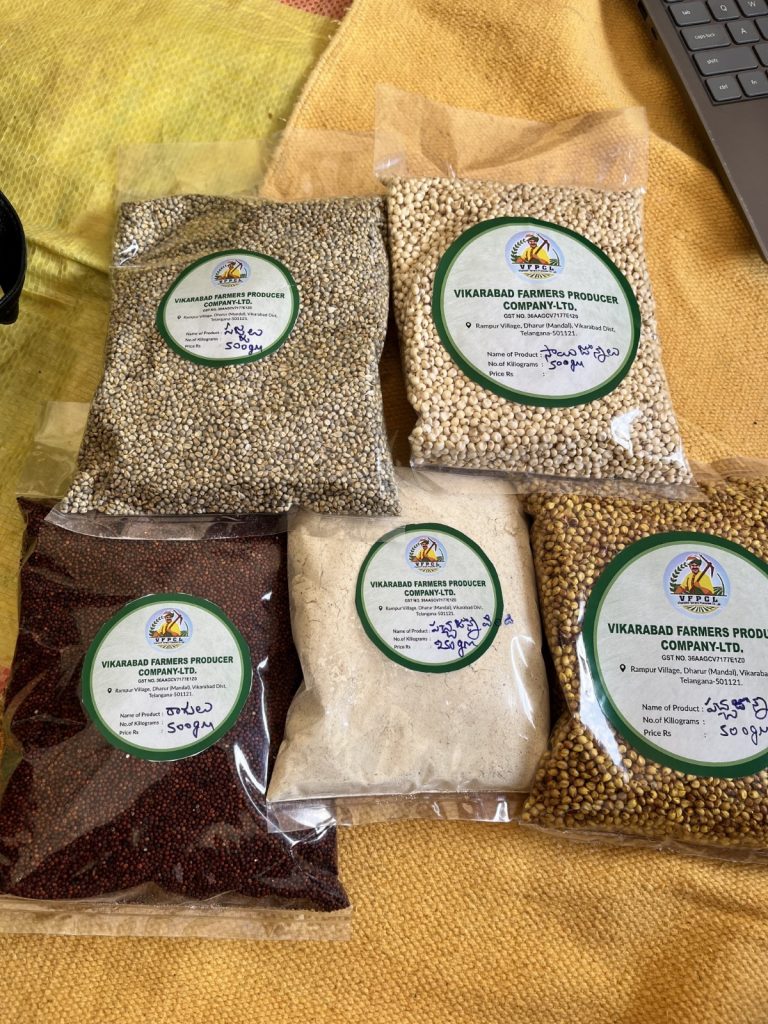
Expanding SEED’s Impact
SEED’s mission and vision extend beyond rural agricultural communities. Recognizing the extensive water wastage in slums of Hyderabad, SEED conducted a baseline study and collaborated with the Hyderabad Metropolitan Water Supply and Sewerage Board (HMWSSB) on rainwater harvesting, tank silt cleaning for Dalit communities, and other water conservation efforts. SEED also raised awareness about water conservation in schools, emphasizing the importance of sustainable practices to the next generation.
In Vikarabad, SEED has partnered with Telangana Alliance for Child Rights to address the high incidence of child trafficking and school dropouts, particularly among girls and women from tribal communities. SEED focuses on raising awareness in schools, particularly among 9th and 10th-grade students, to educate them about child protection and prevent trafficking.
SEED for Thought
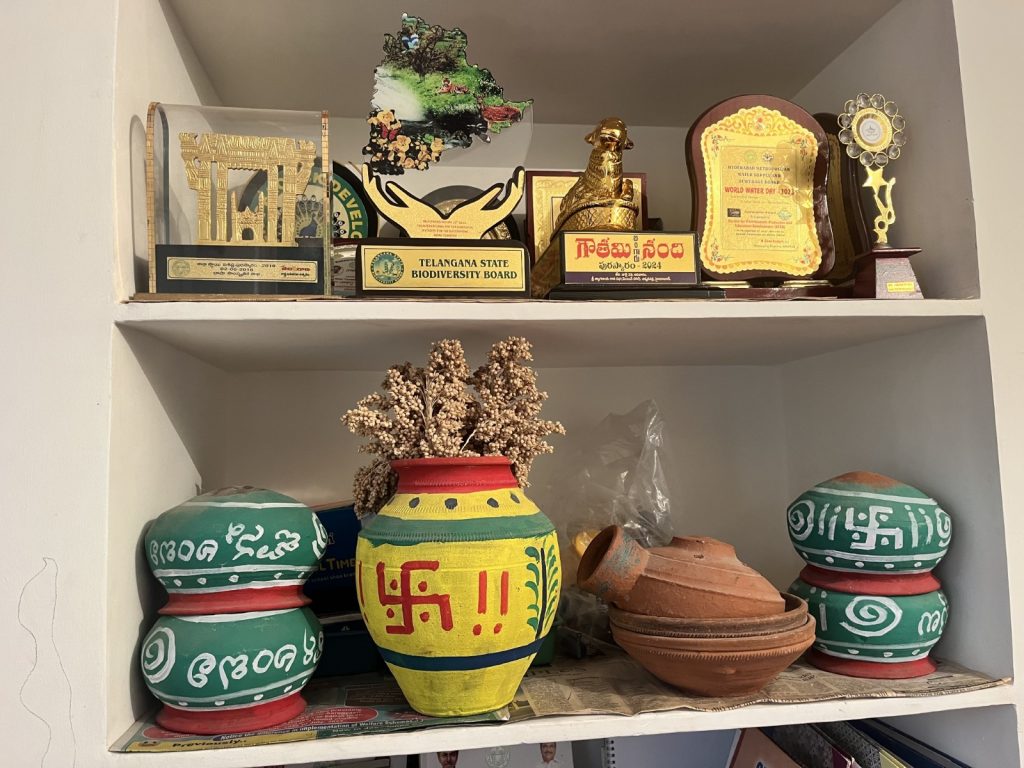
“Resilience in our work comes from the strength of a supportive funding ecosystem. When programs are interrupted, it challenges the trust we’ve built. The farmers ask us, ‘Why begin a project only to stop halfway?’ This is why consistent and supportive partnerships are essential—not just for the continuity of our projects, but for the livelihoods of those (NGOs) who dedicate their lives to this work.” – Nefa, Board Member of SEED.
What stood out during our visit was how an organization operating on an extremely low budget and only 4 full-time members can still survive and thrive through strong passion and dedication. The leader of SEED, armed with technical expertise, often has to wear multiple hats—fundraising, communications, partnerships, HR, capacity building, and more—to address the critical challenges faced by their communities.
This experience made us reflect on a broader question: How can we, as a sector, do a better job of raising funds for grassroots so that these leaders with technical expertise can focus on community-based work? SEED’s work offers a powerful example of the impact that can be achieved with limited resources and a deep commitment to community-centric solutions.

